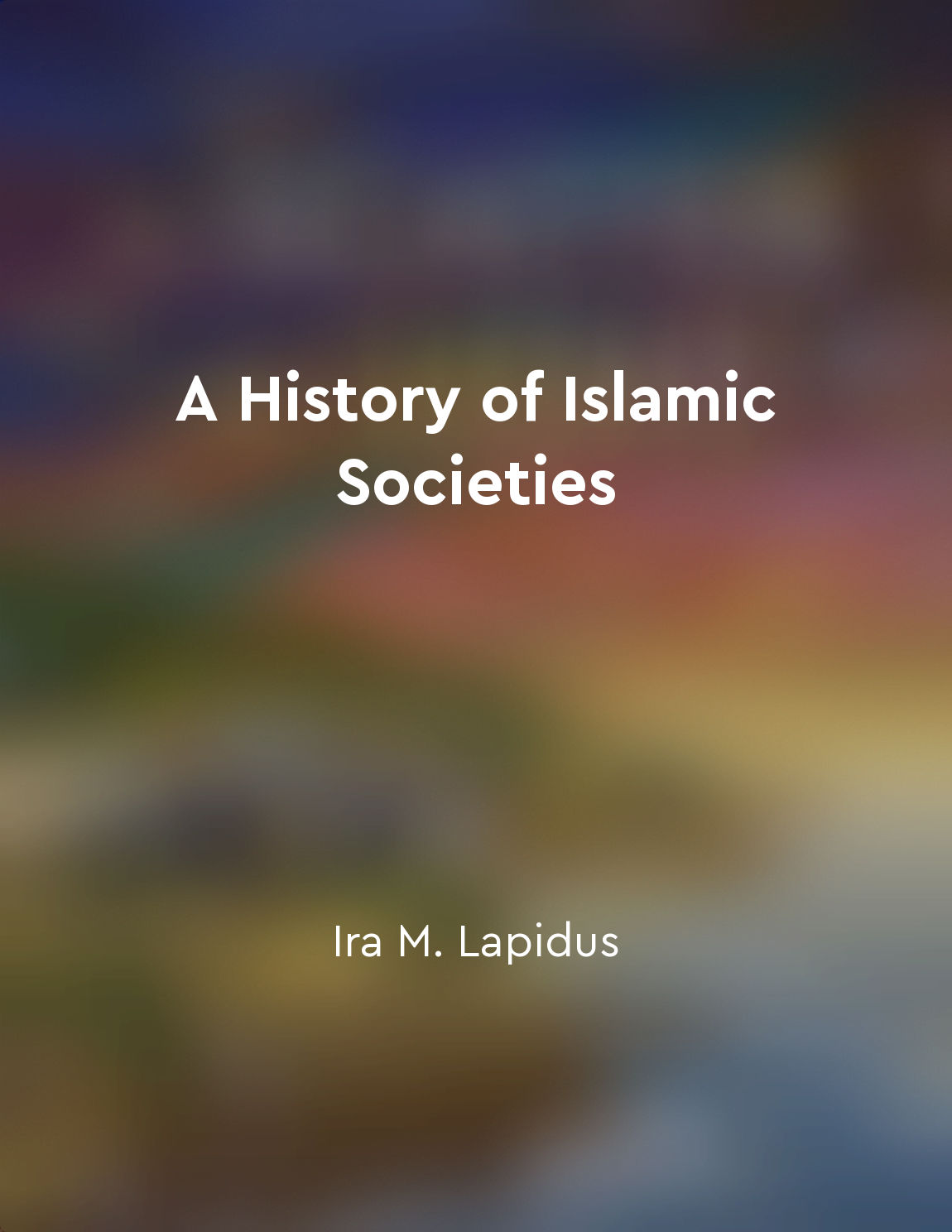The Mongol Invasions disrupted the stability of Islamic societies from "summary" of A History of Islamic Societies by Ira M. Lapidus
The Mongol invasions, which commenced in the early thirteenth century, were a significant turning point in the history of Islamic societies. These invasions, led by the Mongol ruler Genghis Khan and his successors, resulted in widespread devastation and disruption across the Islamic world. Cities were laid to waste, populations decimated, and institutions destroyed. The resulting chaos and instability had far-reaching consequences for Islamic societies. One of the key ways in which the Mongol invasions disrupted the stability of Islamic societies was through the destruction of infrastructure and institutions. Many cities, including Baghdad, one of the most important centers of Islamic learning and culture, were razed to the ground. Libraries, schools, and mosques were destroyed, and countless works of art and literature were lost forever. The loss of these institutions had a profound impact on the intellectual and cultural life of Islamic societies, setting back centuries of progress and development. In addition to the physical destruction caused by the Mongol invasions, there was also a significant loss of life. The Mongols were known for their brutal tactics, including mass killings and enslavement of populations. Millions of people were killed or displaced, leading to a severe decline in population and labor force. This loss of human capital had a long-lasting impact on the economic and social fabric of Islamic societies, leading to widespread poverty and suffering. Furthermore, the Mongol invasions also disrupted the political order in Islamic societies. Many ruling dynasties were overthrown, and new powers emerged in the wake of the invasions. This power vacuum led to increased conflict and instability, as various factions vied for control of territories and resources. The resulting political fragmentation further weakened Islamic societies, making them vulnerable to external threats and internal strife.- The Mongol invasions were a watershed moment in the history of Islamic societies. The widespread destruction, loss of life, and political upheaval caused by the invasions had profound and lasting consequences for Islamic societies, disrupting their stability and setting back their development for centuries to come.
Similar Posts

Cultural diversity enriches global society
The mingling and exchange of different cultures throughout history have been a rich source of innovation and progress for globa...

Islamic societies had a strong emphasis on education
Islamic societies throughout history have placed a high value on education, viewing it as a fundamental aspect of personal deve...

